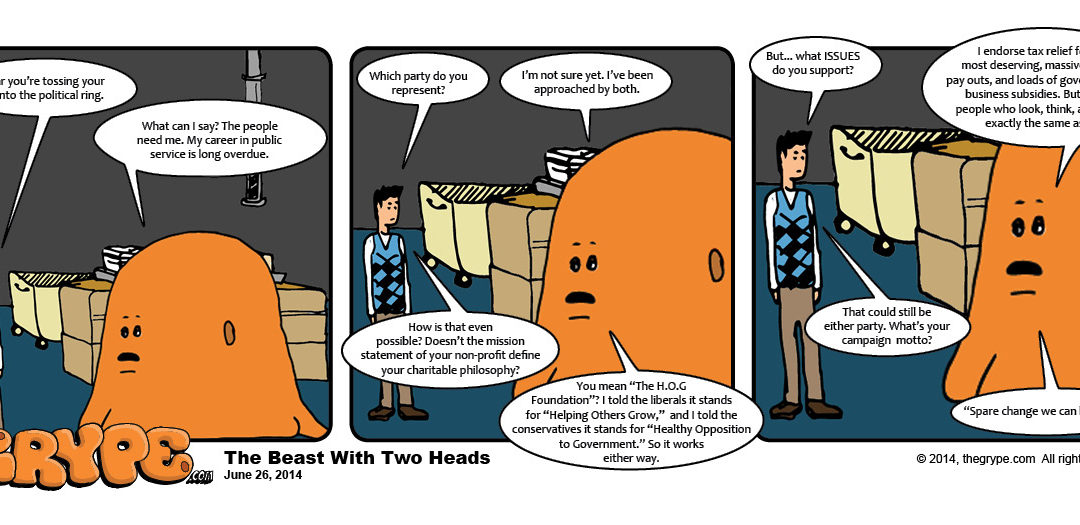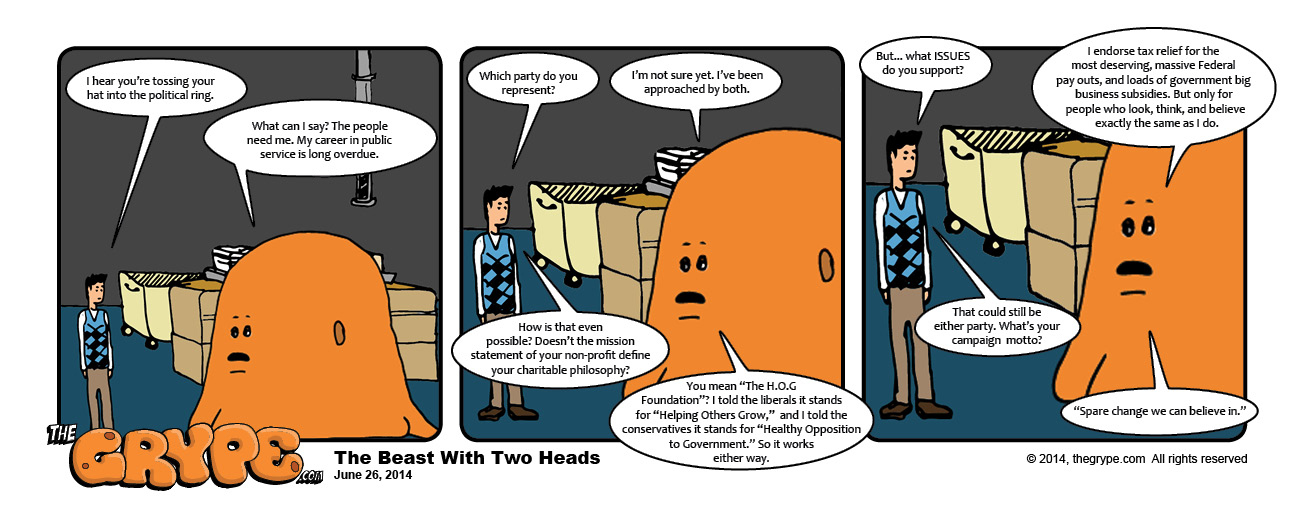Good news! Our Robot E Lee Kickstarter is almost completely funded, with 19 days to go! That means we’re almost certain to reach our goal. We still need a few more donations to push us over the goal line, though. Technically almost all of the pledges so far have been from supporters who AREN’T regular readers of the site. Which means we still have HUNDREDS of loyal readers lined up to pitch in, who have yet to do their part! Right?
(Crickets. Why do I hear crickets chirping?)
Come on… log on, sign up, and toss us 10 bucks for a cool comic you can treasure until the end of your days. Or, use it as a place mat. What do you say? All the cool kids are doing it.
Meanwhile… in the amazing fun-filled world of non-profit corporations, there is a whole lot of money to be made performing charitable works. But things get out out of whack when purportedly non-profit corporations (who benefit from that status every year at tax time) collect more funds than they expend and use them for selfish purposes obviously NOT connected to the non-profit work they are doing, lining their pockets with money earmarked for an altruistic cause.
Lurking on the fringes where “charity” blends with “personal self-aggrandizement” is another suspicious behavior that I never would have believed was an actual “thing,” frankly, until I did some research and found out about it.
I’m talking about “Voluntourism,” the growing trend wherein wealthy European or American volunteers seek out opportunities to travel overseas to engage in charity work for projects in developing countries. Many projects use this model to attract free labor for foreign aid work projects (providing irrigation, housing, and schools) to help impoverished or disaster-stricken locals improve their lives.
So what’s wrong with that?
In its ugliest form, voluntourism is blatant tourism disguised under the artifice of charity work. It tends to disregard the actual needs of the recipient community to cater to the whimsical tastes of potential volunteers and their self-indulgent desire for “transformative personal experiences.” It labels certain locations and causes more preferential and more deserving of aid than other locations less comfortable or pleasant (though more in need of help). A sub-industry of charitable foundations has even started catering specifically to the Western volunteer “market,” re-structuring their programs to serve more attractive locales. Work desperately needed in less-inviting regions gets shunted further down the list as this new tourist trade springs up around work programs, exclusively devoted to servicing the needs of wealthy voluntourists.
It’s also causing trouble for groups who sponsor legitimate charity work. A 2010 report released by the Human Sciences Research Council analyzed the thriving “AIDS orphan tourism business” in South Africa. Under this program, wealthy foreigners sign on to build schools, clean and restore riverbanks, ring birds, and act as caregivers to AIDS orphans for a few weeks at a time. This has spawned a profitable local industry catering to volunteer tourists, essentially selling the orphans’ condition as “a boutique package” in which “saving” them yields spiritual dividends (and profits from tourists). The willingness of Foreigners to pay for the privilege of volunteering has crowded out LOCAL workers, who can no longer get hired— even at near starvation wages— by the charities. Why pay for local laborers when you have enthusiastic foreign saviors eager to sign up and play hero for a few weeks in an exotic overseas land? Helping ORPHANS WITH AIDS? That’s a Facebook Photo Gallery ANY self-righteous Western family would be proud to post online under the heading “What We Did On Our Summer Vacation.”
Africa has long been the favored destination for First World wannabe saints seeking personal saviordom, but other locations are also feeling the pinch. The Indonesian island of Bali now boasts a growing “orphanage industry” catering to voluntourists who specifically want to “help orphan children.” It’s become an easy way for some Balinese to squeeze free money and schooling out of naive foreigners– some Balinese send their children to foreign-charity-funded “orphanages” so that voluntourists will provide them with an education. When the school isn’t open, the “orphans” go back home to their parents.
Educating poor children isn’t a bad thing, orphans or not. But— recently— completely fake charities have been popping up in various tourist destinations throughout the world, looking to provide “meaningful” vacation time to rich foreigners with guilty consciences. Whole economies are being up-ended by the rush to accept the incoming money and man-hours of voluntourists hungry for a few weeks of moral superiority in a lovely exotic landscape.
And business is booming.


